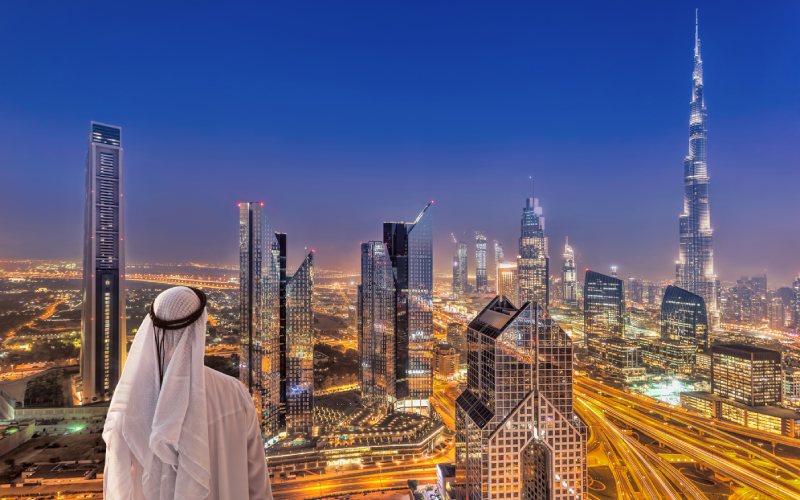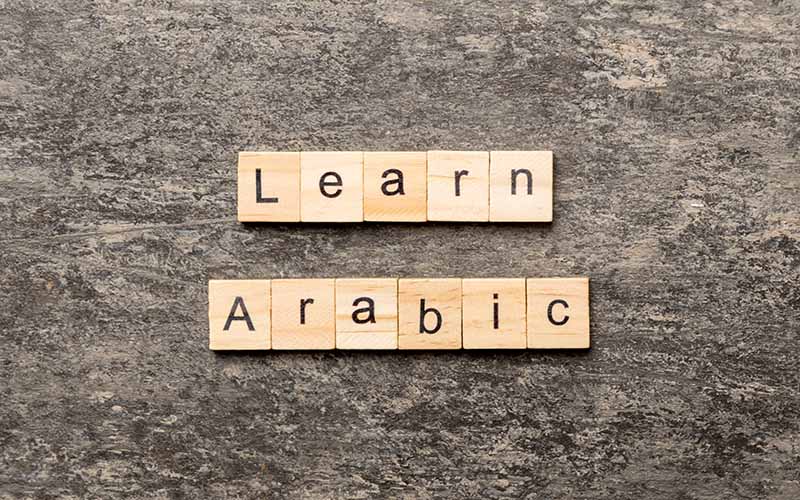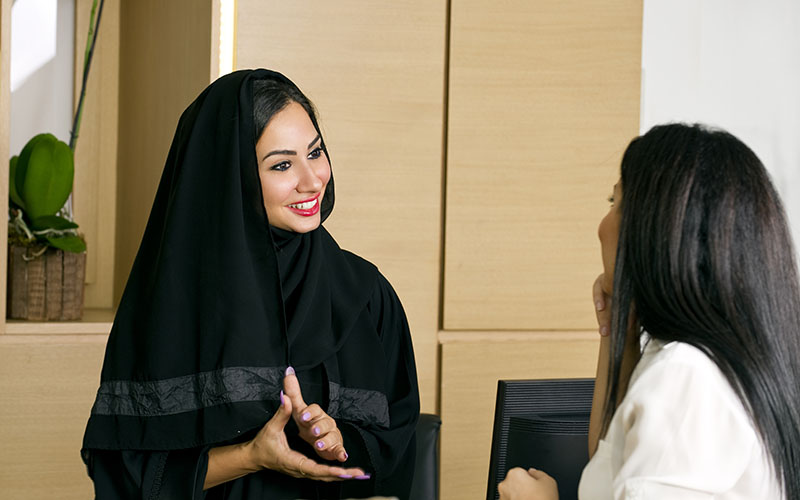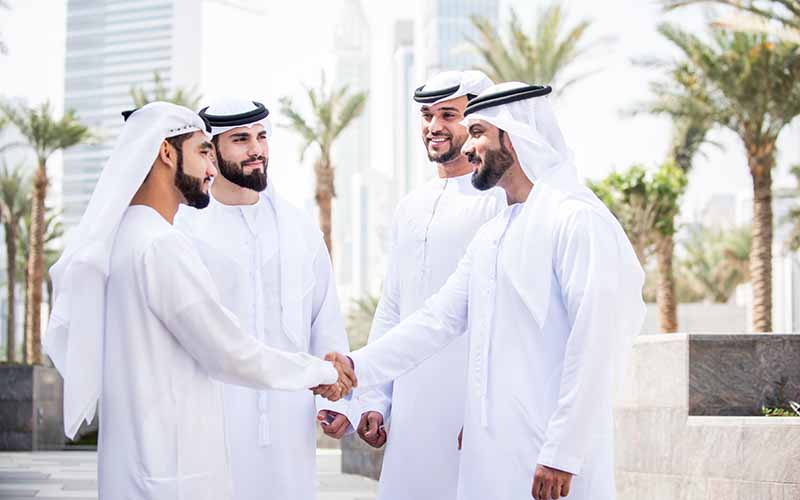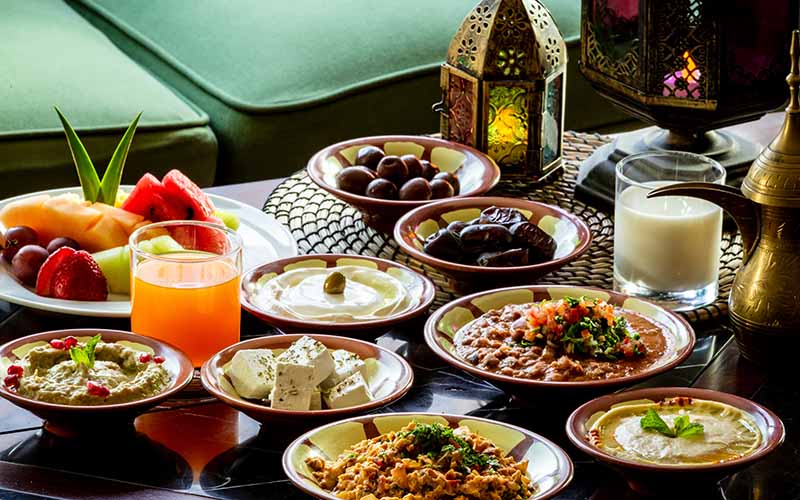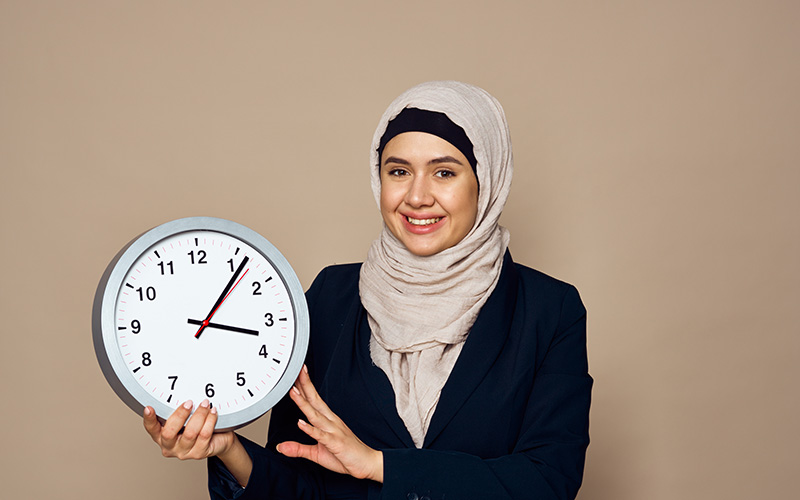Are you planning a trip to Dubai soon? Then it is time to brush up on your Arabic vocabulary! While English is widely spoken in the city, knowing some basic Arabic words and phrases can go a long way in enhancing your travel experience.
From greetings to directions, food and drink, shopping, and emergency situations – we’ve got you covered with this ultimate guide of 58 Arabic words you should know before visiting Dubai.
So let’s dive right in and get ready for an unforgettable adventure in one of the most vibrant cities in the world!
The Basics
Before we dive into the specific Arabic words you should know before visiting Dubai, let’s go over some basics. While most people understand English, it’s always a good idea to learn some common phrases as a sign of respect for the local culture.
First off, it’s important to note that Arabic is written and read from right to left. This may take some getting used to if you’re not familiar with this writing system.
Next, let’s talk about pronunciation. Arabic has several sounds that don’t exist in English, so mastering these sounds can be tricky. It might be helpful to listen to audio recordings or watch videos of native speakers pronouncing basic words and phrases.
When speaking Arabic in Dubai, keep in mind that there are different dialects across the region. The most widely spoken dialect is Gulf Arabic, which is what you’ll likely hear in Dubai.
By familiarizing yourself with these basics of the language and respecting local customs by attempting simple greetings and phrases, you’ll show your hosts that you’re making an effort to connect with them on their terms – even if it’s just through saying “thank you” or “hello”.
Importance of learning basic Arabic words before visiting Dubai
Learning basic Arabic words before visiting Dubai is essential for anyone who wants to have a smooth and enjoyable trip. Here are seven reasons why:
- Respect the Culture
Knowing common Arabic phrases and expressions shows respect for the culture of Dubai, where Arabic is the official language.
- Communicate with Locals
Speaking some basic Arabic can help you communicate better with locals, especially those who may not be proficient in English.
- Navigate Easily
Familiarizing yourself with common directions and places in Arabic will make it easier to navigate around Dubai’s bustling streets and neighborhoods.
- Handle Emergencies
In case of an emergency, knowing how to ask for help or explain what happened in simple Arabic could prove crucial.
- Appreciate Food & Drink
Learning food-related vocabulary will enhance your experience of trying local dishes in restaurants or cafes while avoiding any dietary restrictions or allergies.
- Shop like a Pro
Bargaining at souks (traditional markets) is part of the shopping culture in Dubai- learning numbers and basic bargaining phrases would give you an edge as well as save money!
- Enhance Your Trip Experience
By taking time out to learn some basic phrases before traveling to Dubai, you’ll get more enjoyment out of your trip overall – interacting with locals becomes much more fun when you know a few words!
Arabic Words to Know Before Visiting Dubai
Greetings
When visiting Dubai, it’s important to know how to greet people properly. Arabic culture puts a significant emphasis on courteous greetings as a sign of respect and hospitality.
- The most common greeting used in Dubai is “As-salamu alaykum,” which translates to “peace be upon you.”
- It’s customary for the person being greeted to respond with “Wa alaikum assalam,” meaning “and peace be upon you too.”
- Another common greeting is “Marhaba,” which means “hello” or “welcome.” This is often used when meeting someone for the first time or when entering a store or restaurant.
- Sabah al-khair – Good morning
- Masaa’ al-khair – Good evening
- Tusbih ala khair – Good night (used before going to bed)
- Ma’a salama – Goodbye
- Maa’aa as-salama – Goodbye (response to “ma’a salama”)
- Shukran – Thank you
- Afwan – You’re welcome
- Ahlan wa sahlan – Welcome (literally means “family and easy life”)
- Kayf halik? – How are you?
- Ana bekhair, shukran – I’m fine, thank you
- Min fadlak – Please (used when making a request)
- La shukran – No, thank you
These words can help you introduce yourself, greet others, and express gratitude. In Dubai, it’s common to exchange greetings and pleasantries before getting down to business, so learning these phrases can help you build rapport and establish connections with locals.
Directions and Places
Navigating your way around Dubai can be a challenge, especially if you’re not familiar with the language and culture. Learning basic Arabic words for directions and places is crucial to ensure that you reach your destination safely.
Here are some important Arabic words related to directions and places that you should know before visiting Dubai:
- Min fadlik – Please (used when asking for directions)
- Wayn…? – Where is…?
- Huna – Here
- Hunaaka – There
- Ash-shari’ al-‘arabi – Arab street
- Al-mahatta – Train station
- Al-mataar – Airport
- As-safar – Travel
- Al-funduq – Hotel
- Al-ba’eer – Landmark
- Maqaad – Chair
- Sikkah – Street
- Dar – House
- Madrasa – School
- Qasr – Palace
These words can help you ask for directions, find landmarks, and locate important destinations such as train stations, airports, and hotels. It’s also helpful to know basic directional phrases such as “Yameen” which means right, and “Shimaal” which means left.
This can make it easier to navigate the streets and find your way around the city.
Emergency Situations
Emergencies can happen at any time, and it’s always better to be prepared. Knowing some Arabic words related to emergency situations can come in handy when visiting Dubai.
- One of the most important phrases to know is “Al-Musa’ada,” which means help. In case of an emergency, you can shout this word out loud to attract someone’s attention.
- “Mumkin tas’al al-sharika l-musaa’da?” which translates to “Can you call for help?” You might need to ask someone who speaks Arabic or a passerby if you don’t have access to a phone.
- If you’re feeling unwell or injured, say “Ana mareed” (I am sick) or “Ana majrooh” (I am injured). It’ll make it easier for others around you to understand what’s wrong and provide assistance accordingly.
- In case of theft or robbery, tell people around you by shouting out loudly “Sariq!” (Thief!) so they can alert the authorities quickly.
Knowing these basic Arabic phrases will ensure that you are well-equipped with the right vocabulary in case of an emergency while visiting Dubai.
Food and Drink
When you visit Dubai, it’s impossible to miss out on the delicious food and drink options available. The city is a melting pot of cultures and cuisines, offering visitors an opportunity to indulge in traditional Arabic dishes, as well as international cuisine.
Some basic Arabic words that can come handy while ordering food are
- “shay” for tea, “maa” for water
- “khubz” for bread. When dining at a restaurant or cafe, it’s always polite to greet with “Salaam Alaikum” before placing your order.
- Ma’a as-salama – Goodbye (used when leaving a restaurant or cafe)
- Al-ghida’ – Food
- Al-ma’a – Water
- Al-shay – Tea
- Al-qahwa – Coffee
- Al-halib – Milk
- Al-khubz – Bread
- Al-lahm – Meat
- Al-samak – Fish
- Al-khudar – Vegetables
- Al-fakiha – Fruit
- Al-halwa – Dessert
- Al-mayyas – Salad
- Sinya – Tray
- Tasaqil – Plates
Knowing these words can help you navigate menus, order food and drinks, and communicate with waitstaff and chefs. It’s also important to note that many restaurants in Dubai serve Halal food, which means it conforms to Islamic dietary laws. If you have any dietary restrictions, it’s a good idea to familiarize yourself with these regulations or ask the waitstaff for guidance.
Shopping
Shopping in Dubai is a must-do activity for tourists. The city has numerous malls and souks that offer various products like clothes, jewelry, electronics, and more.
- When shopping in Dubai, it’s essential to know basic Arabic words related to shopping. For instance, “Kam Thaman Hada?” means “How much does this cost?”
- “La Shukran,” which translates as “No thank you”.
- Aswaq – Markets
- Souk – Bazaar
- Ma’alim al-shira’ – Shopping mall
- Mudun shira’ – Shopping centers
- Bay’ – Sale
- Saraf – Money exchange
- Ma’loomaat al-saraf – Currency exchange information
- Ma’a al-salaama – Goodbye (used when leaving a shop)
Make sure to bargain when buying from vendors at souks because haggling is expected! On top of that there are usually deals offered during festivals such as Ramadan & DSF (Dubai Shopping Festival).
Numbers
Numbers are essential to understanding prices, asking for directions and making reservations in Dubai. Knowing basic Arabic numbers can make communication easier and prevent misunderstandings.
In Arabic, the number system is based on multiples of 10. The numbers from 1 to 9 have their own unique symbols, while the rest of the numbers are formed by combining these symbols with either a tens or hundreds symbol.
When counting in Arabic, it’s important to note that digits are written from left to right. For example, instead of writing “123”, Arabs write “321”.
Here’s how you can pronounce some basic Arabic numbers:
- One: واحد “Wahid”
- Two: اثنين “Ithnayn”
- Three: ثلاثة “Thalatha”
- Four: أربعة “Arba’a”
- Five: خمسة “Khamsa”
- It’s also useful to know higher numbers such as ten (عشرة – ‘ashara), twenty (عشرون – ‘ishrun) and one hundred (مئة – mi’ah).
By learning these basics before your trip to Dubai, you’ll be able to navigate through transactions with ease!
Time and Dates
When it comes to time and dates, Arabic can be a bit tricky. In Dubai, the Islamic calendar is used alongside the Gregorian calendar, so knowing both systems is important. In the Islamic calendar, there are 12 lunar months that consist of either 29 or 30 days each year. Here are some important Arabic words related to time and dates that you should know before visiting Dubai:
- Al yawm – Today
- Ghadan – Tomorrow
- Ba’d ghadan – The day after tomorrow
- Alyawm al-ithnayn – Monday
- Alyawm ath-thalatha – Tuesday
- Alyawm al-arba’a – Wednesday
- Alyawm al-khamis – Thursday
- Alyawm al-jumu’ah – Friday
- Alyawm as-sabt – Saturday
- Alyawm al-ahad – Sunday
- Shahar – Month
- Sanah – Year
- Fajr – Dawn
- Shams – Sun
- Layl – Night
Knowing these words can help you communicate better with the locals, especially when it comes to scheduling appointments, making plans, and understanding business hours. It’s also important to note that in Dubai, the official weekend is Friday and Saturday, so businesses may be closed or have different operating hours on those days.
Conclusion
Learning Arabic words before visiting Dubai can greatly enhance your experience in this vibrant city. Knowing basic phrases and terms can help you communicate better with locals, navigate easily around the city, and fully immerse yourself in its rich culture.
Whether it’s greeting someone with a warm “Salam Alaikum”, ordering delicious food in Arabic at local restaurants, or bargaining like a pro at traditional markets – having some knowledge of the language will not only make your trip more enjoyable but also show respect for the local customs. Therefore, take some time to learn these 58 essential Arabic words before visiting Dubai and open up new opportunities to connect with its people and heritage. It’s worth the effort!

